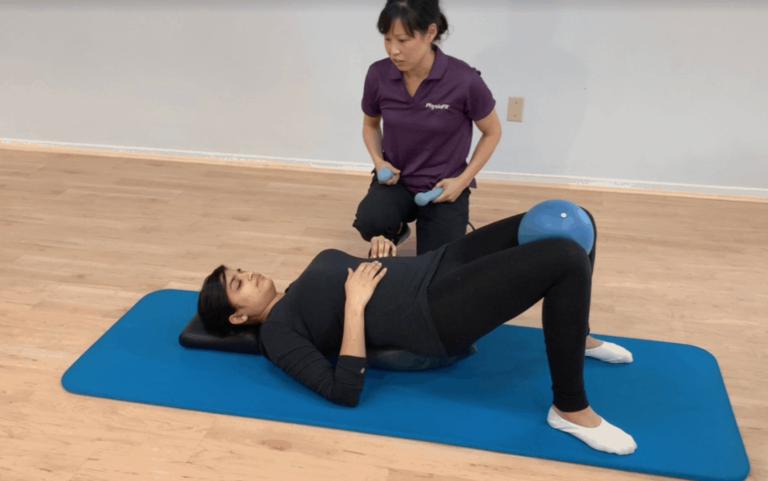
The pelvic floor is a group of muscles and connective tissues that help support pelvic organs including bladder, bowel and, in women, the uterus. Getting pelvic floor treatment has been proven to address a wide variety of symptoms.
A pelvic floor disorder:
Is a condition in which the pelvic floor muscles or connective tissue weaken or become injured, causing pain or other problems.
Some common Pelvic floor disorders include:
Bladder control problems like urinary leakage and urgency
Common bowel control problems include leakage of stool and constipation
Pelvic organ prolapse: involves weakened muscles causing pelvic organs to bulge out the vaginal or rectal opening due to lack of enough support.
A pelvic floor physical therapist can help with these conditions by providing the right guidance to strengthen your pelvic floor.
If you’re unsure if physical therapy is right for you then request a Free 20 minute Discovery Session for your chance to speak with one of our specialists to get your questions answered.
You’ll also learn:
- Common reasons for your issue
- Drug free options
- How we to speed up recovery
People who may benefit from pelvic floor treatment include:
→ On-the-Go Women of all ages who want to be able to work, play, and laugh without the embarrassment and hassle of bladder leaks…and always worrying where the nearest restroom will be.
→ Empowered Women who want a real answers and solutions to their sexual pain, having been told too many times to “just relax.”
→ Health-Conscious Women who know that medication is not the long-term solution to their pelvic pain, bladder urgency, or constipation, and who feel let down by the health care system and want to GET BETTER!
→ Forward-Thinking Moms who realize that the sooner they take care of their postpartum bellies, bladders, backs, and bottoms, the less likely that they will have ongoing problems that prevent them from participating in every fun moment with their kids!
→ Self-Aware Athletes who want to achieve their fitness goals by addressing their pelvic floor issues, back pain, hip pain, and put the WHOLE PICTURE together so that they can move better, feel better, and perform better.
→ Gracefully Aging Adults who know that incontinence is not a normal part of aging, who want to stay active, independent, and able to enjoy activities with family and friends for decades to come.
→ Women with As-Yet Unexplained Pelvic or Abdominal Pain who still want their life back, and are not giving up hope, even after seeing numerous health care practitioners and being told that it’s “in their head” or that pain medication is the only answer for them.

 Los Altos, CA
Los Altos, CA
